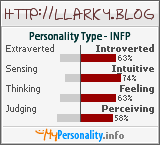I just had a 4-hour-long discussion with my French friend on laïcité. It started as I asked her about Sarkozy's ban on burkas. I asked her how French people were reacting to this issue and as a young, free-spirited French girl she is, she said she wasn't much aware of this issue. Which made me conclude that the public's reaction is not as radical as that of, say, Massimo Tartaglia's, who knocked 2 teeth out of Berlusconi's mouth.
Then I asked her,
if she still sees female Muslim students at her university who cover their heads and to that she responded, "NO!! here it's not allowed to cover your head or show any religious symbols at schools!."
And THAT was the moment of intellectual enlightenment. As nerdy as I am, I will call that the laïcité moment.
What is "Laïcité"?
- THE STRICT SEPARATION OF STATE FROM CHURCH.
- RELIGION IS A PRIVATE AFFAIR.
*One of the demands of many supporters of the French Revolution in 1789 was to curb the power and influence of the Catholic Church and this began a gradual move towards a secular society. Reforms were introduced in the late 19th century to make French state education secular. Then in 1905 a new law declared France to be a secular country in which there was a strict separation between state and church.
Crucially, the notion of laïcité has broad backing across the political spectrum in France from the centre right to the centre left. Whenever there are debates about the role of religion in French society the division of church and state is widely asserted as one of the fundamental principles of French republicanism – and a principle to be defended.
This has been seen most recently in the debate about what pupils can wear to state schools. In the 1980s and 1990s there were a series of high profile cases involving female Muslim students expelled or excluded from school for wearing headscarves or the veil. After much political debate a controversial new law was passed in 2004 that outlawed the wearing of ‘conspicuous’ religious symbols in state schools. This was widely described as a ban on Muslim headscarves and veils though in fact the law does not refer to any particular items of clothing or symbols and applies to all faiths. Many Muslims in France were opposed to the law, feeling it was targeted at them. However others have supported the move saying that it ‘liberated’ young Muslim women.
source: Michael Streeter (cool fam name, dude), www.frenchentree.com
My thoughts on this issue.
How you dress can be a way to express your individuality. NO. You know what. I actually like this Laïcité. If it's actually your inside belief that is really significant, why do you feel the need to represent it superficially. Say I'm a homosexual athiest, should I go and shave my head and get tattoos to prove superficially that I don't give a flying fuck? Actually if I did that, my decision would be reactionary, thus not be based on the free will, which is the very thing I believe, athiests try to promote.
(of course, this is not the only reason why Muslim women wear hijabs but I'm talking about the ones who wear it to "represent" their belief system and this reason of "freedom of dress" is basically the only excuse Muslims can give to the French government to allow hijabs at schools. What else are you going to tell them? that the state should respect the religion? when it clearly states that it considers all religions to be private matters?)
lunes, 4 de enero de 2010
Suscribirse a:
Enviar comentarios (Atom)

No hay comentarios:
Publicar un comentario